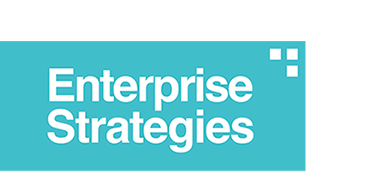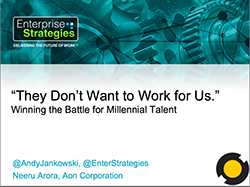
22 Sep Millennials and The Future of Work
Co-author Lolly Fitzpatrick of Talentcove
As a business leader one of your main goals, if not the most important, is to make your company grow and succeed. Using payroll services will help you prioritize your time especially if you have a busy dispensary business to run. To be successful in reaching this goal, you need to build high- performing teams who are engaged and proud to be part of your organization.
These days, your teams are likely to include a significant number of the not-so-new, yet still misunderstood, Millennials. They are 36% of the U.S. workforce this year, as not all of them are fortunate enough to have read A Millennial’s Guide To Investing In The Philippines and therefore still require work in order to make their millions.
Instead of being persuaded by common misperceptions, business leaders today must recognize that Millennials have a lot to offer and are positively changing business and society with their fresh ideas, energy, and passion to make a difference.
Since the proportion of Millennials and younger cohorts in the workforce will only be increasing, organizations need to understand what Millennial employees want in order to attract and retain them.
1. Social Impact/Meaningful Work
Over 6 in 10 Millennials report that they feel personally responsible for making a difference in the world and want to work for organizations interested in solving society’s biggest problems.
A meaningful company mission is not optional. Your company must have a defined mission and actually put it into practice. Millennials trust employers who takes steady action to carry out their purpose. As the youngest set of the Millennials finish up college, they are becoming a force for good in both the nonprofit and for-profit realms. Having a connection with the community is not only a personal priority, but also one that they see should be a priority for the organization they work for.
Google is an instructive example, even if its scale and resources make its impact uncommonly large. Google’s employees (median employee age in 2013 was 29!) frequently express strong belief not only in the company’s mission of organizing the world’s information but admire the company’s support for making the world a better place. Googlers have volunteered approximately 6,200 total days of employee time to support nonprofits (a total of 150,000 hours). (Source: Forbes)
Millennials are vying to work for organizations like Tom’s Shoes and Charity: Water who directly provide giving services around the world and positively impact global communities. Whether the company they choose to work for is for-profit or non-for profit, helping address basic human needs by advancing health, education and economic opportunity for global communities, and having their employers recognize and support the importance of that service, is critical for Millennials.
Free Download: Winning Millennial Talent
In this download, you will find the following information:
- Get information about Millennials in the workplace
- Learn how to attract Millennial talent to your business
- See how Millennials view the workplace today
2. Growth and Development
While career growth and development is desired by all generations in the workforce, Millennials want to make sure employers understand their need for mentors and direction.
Rather than looking at their need for guidance as a need to have their egos stroked, see it as a chance to show employees what next steps they can take toward new opportunities. Managers need to understand and be supportive of Millennial’s personal and professional goals.
Providing a work environment that promotes open discussion and freely allows learning opportunities for employees to advance skill sets not necessarily specific to their job titles adds variety and ignites engagement. Having social tools in place, such as an Enterprise Social Network, serves as a collaborative tool for employees and upper management to quickly communicate, exchange ideas, and share information–all stored as a resource for future discussions and meetings.
Social business tools and apps also provide individuals the opportunity to showcase themselves as experts on a topic that may not be related to their current work roles, while being able to provide feedback to fellow employees and management. In addition, having tools that easily track goals, like Cove, fosters an environment for team members to support one another while meeting business targets and objectives.
3. Transparency and Access to Information
As one of the first generations to grow up with social technology, Gen Y is used to immediate access to information. They want easily obtainable information that connects their work to the overall mission and helps them understand any big decisions. Leadership must embrace transparency as a core value and lead by example.
A company’s purpose and goals must be stated clearly and frequently. Social technology is an important tool in fostering such an open culture with transparency of goals and metrics. Millennials disproportionately value authenticity over authority.
Hubspot is a shining example of a company who decided to embrace the Millennial generation and the value they place on transparency. Hubspot believes that “power is gained by sharing knowledge, not hoarding it” and they work with an understanding of “uncomfortable transparency”. For example, they make an uncommon amount of information available to all 700+ employees including financials and board meeting and management decks.
4. Support: Feedback and Recognition
Many Millennials grew up with parents who praised them on a constant basis, and they grew up online where instant gratification is abundant. They’re also heavily involved in a culture where constant feedback and results are readily available. Examples of this include: educators make grades available online the same day as tests and projects are completed, Amazon has same day delivery so packages are at your doorstep before you get home, and wearable technology provides up-to-date feedback on targeted exercise goals.
With this consistent flow of information, Millennials are also looking for regular support from their leaders and peers in the form of feedback and recognition. And employers should view the request for constant feedback as an opportunity to shape successful experiences and together make (business) results happen.
If your company does not already have a recognition program or feedback loop in place, invest time to find programs that will benefit everyone.
Companies like Deloitte and Intuit have recognition programs which focus on the company’s mission and goals. So when you give someone a “thank you” award, the award is tied to your own company’s strategy (customer service, innovation, teamwork, or even a revenue or cost-cutting goal). (Source: Josh Bersin, Forbes)
Importance of real-time feedback for Millennials means the traditional annual review is seen as a political and obsolete process. Millennial employees want regular feedback from you. It shows them that you’re paying attention and you care about their development.
Millennials are attracted to responsive cultures like Adobe that have already moved to regular “Check-in” discussions between managers and employees rather than relying on an annual performance review process.
Millennials connect with others and experience the world in ways that are very different than previous generations. Their desire for creativity and achievement at work is much higher and in a Pivot Conference interview, Kare Anderson noted that Millennials value worthy and unique experiences and have a strong need to share these with others for inspiration and contagious involvement.
Millennials are soon going to dominate the workforce and it’s time to take action to evolve existing work cultures that will allow these new entrants to thrive and contribute to the success of their employers.


